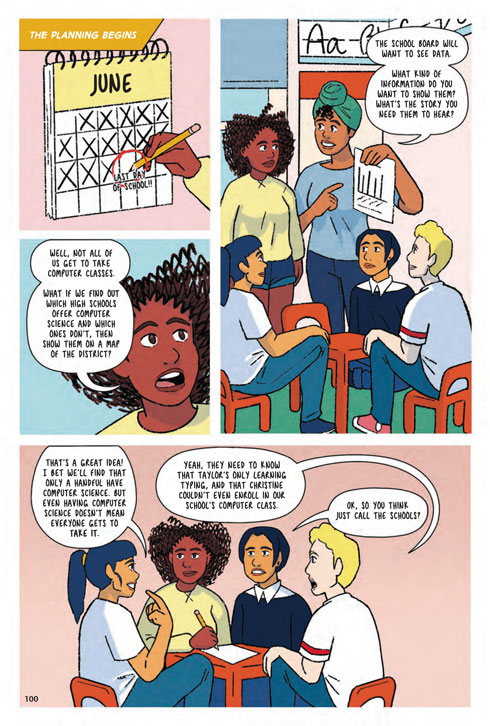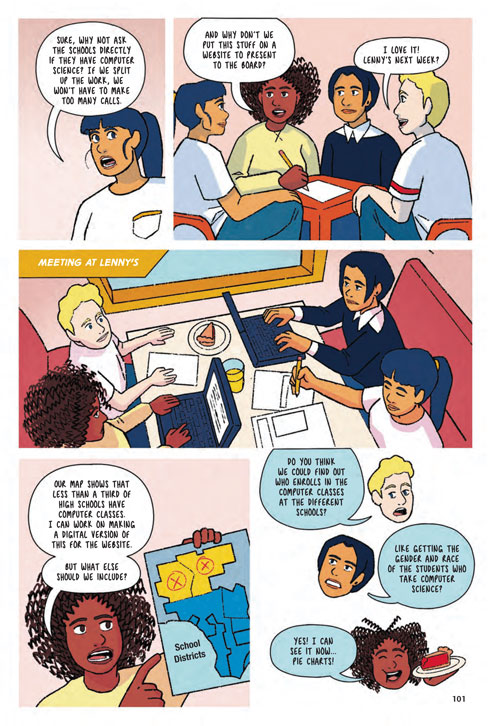The Power of Data Literacy
By Fenella Saunders
A graphic novel shows how students can learn computer science for the betterment of their communities.
A graphic novel shows how students can learn computer science for the betterment of their communities.

POWER ON! Jean J. Ryoo and Jane Margolis, illustrated by Charis JB. 136 pp. The MIT Press, 2022. $19.95.
Back-to-school season is well underway, and with the recent focus on increasing students’ ability to utilize evidence-based decision-making, one core curriculum standard that is emphasized by high school teachers is data literacy. That’s a key theme in the graphic novel Power On! written by Jean J. Ryoo and Jane Margolis and illustrated by Charis JB.
What happens when a supposedly objective AI system is actually racially biased, and causes real harm in the community? Can an algorithm be racist? That’s what a diverse group of friends decides to find out in this timely story. Growing up around tech, they’ve always felt pretty tech-savvy—but after the AI incident, suddenly they’re not so sure. The friends decide they want to learn more about computers by taking some computer science classes at their various high schools, but with mixed results. Although some of the friends have teachers who discuss issues of equity in technology and take them on field trips to local companies, others have instructors who only teach typing and basic website setup. Some of the kids are even shut out of classes entirely and told they’d be “better off” learning other subjects. After-school computing clubs fill in some of those gaps, teaching the students about programming wearable tech.

Reprinted with permission from The MIT Press. Copyright 2023
In the excerpt shown here, the friends have determined they need to take a more active role in accessing computer science education. They have taken a teacher’s suggestion to present at their local school board meeting, and in order to prepare, they have decided to call all the schools in their district to see which even offer computer science. The students need to effectively present their data, as well as support their point with statistics about the demographics of students who enroll in these classes. Ryoo and Margolis hope that this story will inspire students to investigate their own districts’ offerings, and encourage them to take an active role in increasing access to classes. Teachers could take this story and create a project in which students decide on a local problem about which they have to gather, analyze, and present data.
Ryoo and Margolis have created a fun and engaging story that explores the importance of computing and data education, biases in education, issues in equity and ethics in tech, and much more. Braiding together the stories of these friends with explainers on computer science and profiles of people of color and women in tech, this book is highly informative for young people wanting an accessible intro to computer science and tech.

Excerpted from Power On! By Jean J. Ryoo and Jane Margolis. Reprinted with permission from The MIT Press. Copyright 2023.
Click "American Scientist" to access home page
American Scientist Comments and Discussion
To discuss our articles or comment on them, please share them and tag American Scientist on social media platforms. Here are links to our profiles on Twitter, Facebook, and LinkedIn.
If we re-share your post, we will moderate comments/discussion following our comments policy.